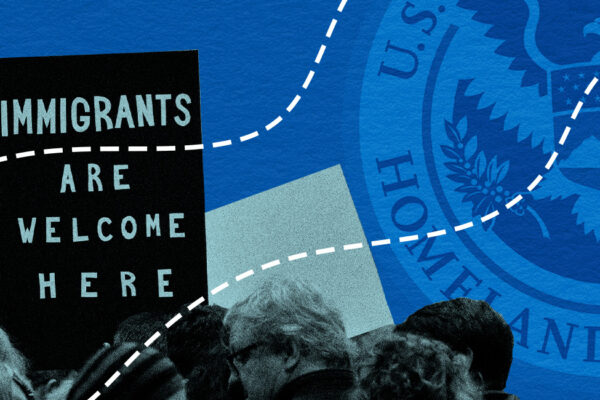The U.S. Senate on Friday will debate legislation that would decimate immigrants’ due process rights, lead to mass detention, and fuel xenophobic narratives.
The United States Senate today is set to debate H.R. 29, the Laken Riley Act, in the face of widespread opposition from civil liberties and immigrants’ rights advocates. The legislation would mandate the automatic detention of any person in the country who has been accused of committing certain non-violent offenses and who does not have proper documentation – including people who have not even been charged with any crime. No timeframe or statute of limitations would apply to the alleged criminal activity, and the law provides no mechanism for those in detention to be released.
“We urge Maine’s senators to oppose H.R. 29 because it fails to comply with some of the Constitution’s most basic due process guarantees,” said ACLU of Maine Executive Director Molly Curren Rowles. “Anyone can accuse another person of a crime, but that does not make the person guilty. Our system does not allow the detention of people who have not been criminally charged. All people are innocent until proven guilty, but under H.R. 29, a simple false accusation could land a person in federal detention, ripping them away from their families, workplaces, and communities indefinitely.”
“This legislation would also invite racial profiling at a time when immigrant communities already feel under siege and terrified that they may face increased discrimination under the incoming Trump administration,” continued Curren Rowles. “Immigrants who commit crimes are already subject to an array of serious penalties, including deportation. This legislation will not increase community safety, and could instead cause baseless harm to many hardworking, long-term Maine residents who are our neighbors, friends, and family members.”
In a recent letter to Congress, the ACLU National Political Advocacy Department argued that H.R. 29 does nothing to protect public safety, but instead constitutes “a serious threat to civil liberties that would inflict damage on an already taxed immigration system, invite racial profiling of longtime residents, and violate bedrock constitutional principles.”
H.R. 29 passed the House of Representatives on Tuesday, January 7.
Stay Informed
Sign up to be the first to hear about how to take action.
By completing this form, I agree to receive occasional emails per the terms of the ACLU’s privacy statement.
By completing this form, I agree to receive occasional emails per the terms of the ACLU’s privacy statement.

